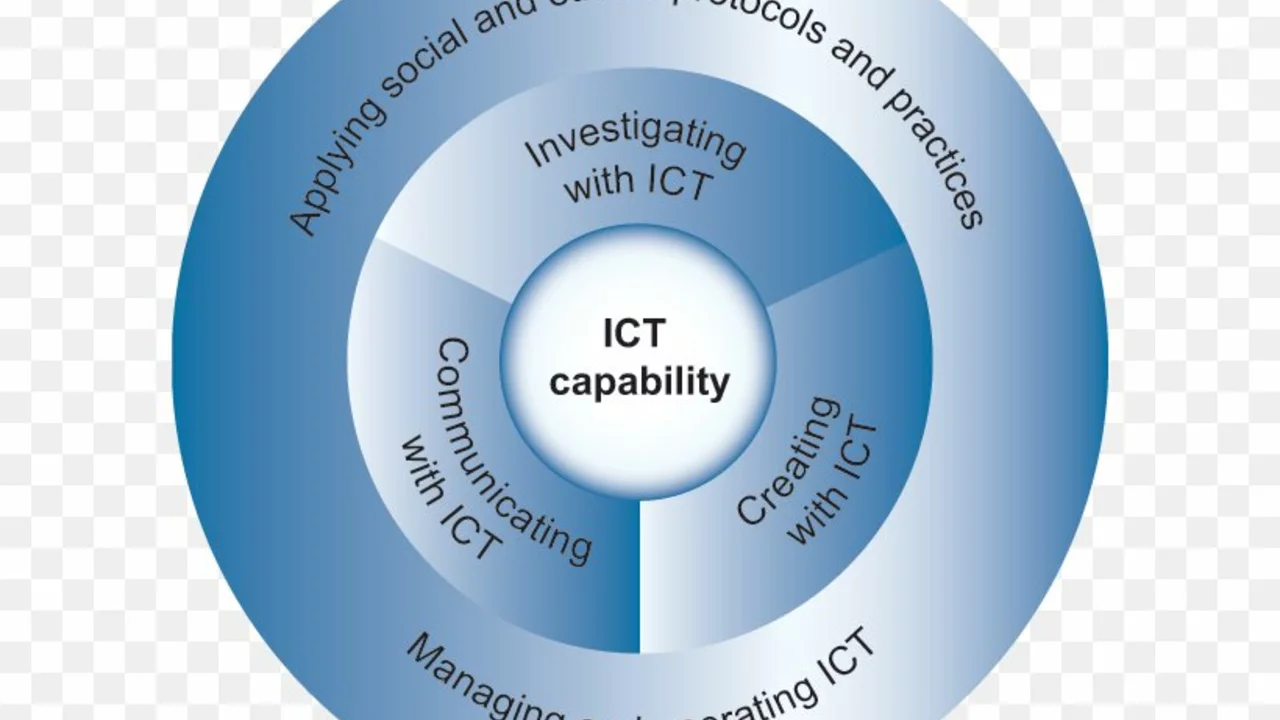What is technology in ICT?
 Jul, 26 2023
Jul, 26 2023
Understanding the Concept of Technology
Firstly, to understand what technology in ICT is, we need to know what technology itself is. Technology is a broad term that refers to the application of scientific knowledge for practical purposes. It encompasses a wide variety of machinery, tools, techniques, systems and methods of organization used in the production of goods and services or in accomplishing objectives such as conducting scientific research.
Technology has been a part of human existence since the dawn of civilization. From the simple tools used by our earliest ancestors to the sophisticated digital devices we use today, technology has continually evolved and transformed the way we live, work, and communicate.
The Intersection of Technology and ICT
Information and Communication Technology (ICT) is a subset of technology. It refers to the use of technology to manage information and aid communication. ICT encompasses both the internet-enabled sphere as well as the mobile one powered by wireless networks. It also includes older analog technologies, like radios, televisions, and landline telephones.
Therefore, technology in ICT is about the various hardware, software, networks, and media for the collection, storage, processing, transmission, and presentation of information (voice, data, text, images), and related services.
Components of Technology in ICT
Technology in ICT is typically divided into two main components: hardware and software. Hardware refers to the physical elements of technology, including computers, servers, switches, routers, cables, and so on. On the other hand, software includes the programs, applications, and operating systems that control and manage the hardware.
Both hardware and software are essential for the functioning of an ICT system. Without hardware, the software would have no platform to run on, and without software, the hardware would not perform any useful function.
Role of Technology in ICT
Technology plays a crucial role in ICT by providing the tools and platforms needed to process and communicate information. The internet, for instance, is a product of ICT technology that has revolutionized communication and access to information on a global scale.
Moreover, technology in ICT also contributes to the development of new products and services, enhances operational efficiency, and facilitates decision-making processes in various sectors such as business, education, health, and government.
Impact of Technology on ICT
Technology has a significant impact on ICT. It has not only expanded the scope and reach of ICT but also transformed the way information is processed and communicated. The advent of digital technology, for example, has made it possible to store, process, and transmit vast amounts of information quickly and efficiently, enabling real-time communication and collaboration across vast distances.
Furthermore, emerging technologies like artificial intelligence, big data, and cloud computing are expected to bring even more profound changes to the ICT landscape in the future.
Future of Technology in ICT
The future of technology in ICT looks promising, with many exciting developments on the horizon. We are already seeing the rise of technologies like artificial intelligence, machine learning, and big data, which are set to revolutionize the way we process and use information.
In the future, we can expect to see even more advanced technologies emerge, such as quantum computing and advanced robotics, which will further expand the capabilities of ICT and pave the way for new applications and services.
The Challenges of Technology in ICT
While technology brings many benefits to ICT, it also presents several challenges. One of the biggest challenges is maintaining security and privacy in the face of increasing cyber threats. As our reliance on ICT grows, so does the risk of cyber attacks, data breaches, and other forms of cybercrime.
Other challenges include the digital divide, which refers to the gap between those who have access to ICT and those who do not, and the issue of e-waste, which is a byproduct of the rapid technological change in the ICT sector.
